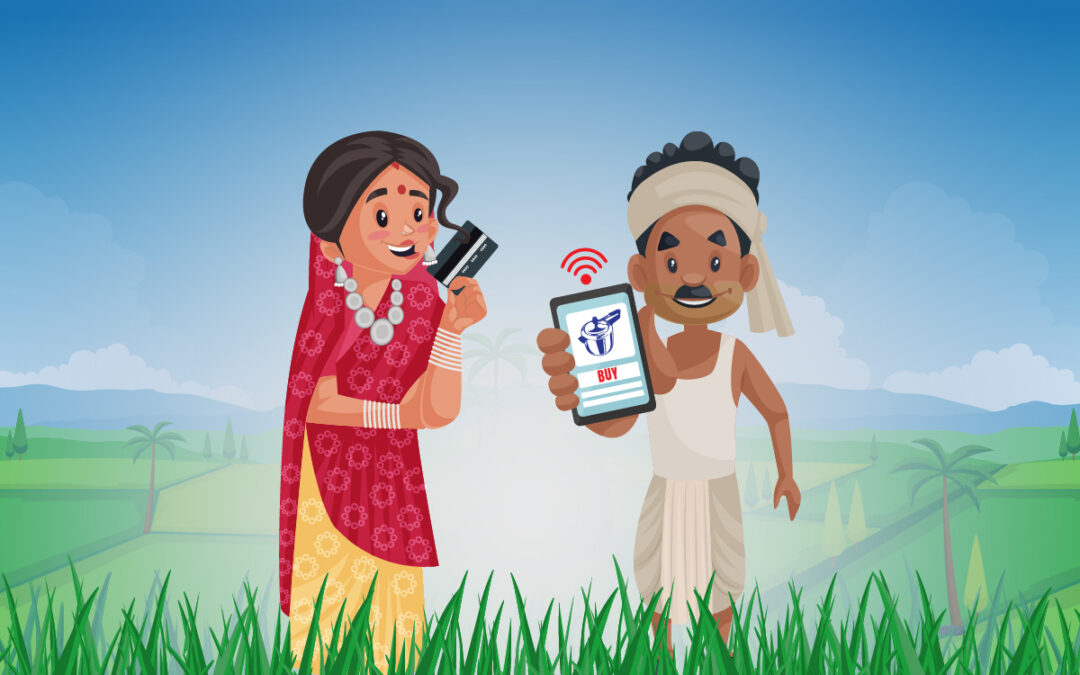Think of a small village where people used to rely on local marketplaces for their day-to-day needs. Imagine the same village where people can buy things on the internet and have them delivered to their doors. This revolution is taking place throughout rural areas of India, thanks to the rise of e-commerce.
E-commerce has transformed how people shop all around the globe, and the effects are now being noticed in rural India. As even more people in these areas have access to the internet and mobile phones, online shopping becomes more popular.
The growth of e-commerce in rural parts of India is altering the local economy and daily life, but it also presents various challenges and opportunities.
Challenges:
- Inadequate infrastructure
Many rural areas have limited access to the internet and insufficient transport networks, making it challenging to guarantee timely deliveries and seamless online transactions.
- Trust Issues
Improving trust with rural consumers is vital. Many people are hesitant of online transactions due to worries over product quality, safety of payments, and the procedure for returns. E-commerce businesses must invest in establishing trust through dependable services and client education.
- Digital Literacy:
E-commerce can improve digital literacy, but a lack of it is a serious hurdle. Many rural citizens are unfamiliar with utilizing smartphones or browsing digital sites. Providing guidance and assistance is critical in helping them accept e-commerce.
- Payment Solutions:
Limited banking access in rural regions can hinder digital payments. Cash on delivery is a popular option, but it can be logistically challenging and hazardous for businesses. Developing simple and secure payment mechanisms is critical to success.
- Last-Mile Delivery:
Effective last-mile delivery in rural places is a significant difficulty. E-commerce enterprises must develop creative logistical solutions, such as collaborations with local businesses or the use of developing technologies like drones.
Opportunities
- Increased Market Access:
E-commerce enables rural consumers to access previously unavailable products. From technology to fashion, rural buyers can now buy items from all around the country and even the world.
- Economic Growth:
E-commerce in rural areas provides new business opportunities. Local businesses can offer their items online, reaching a bigger audience without the need for a physical location. This can result in employment creation and economic growth in these areas.
- Convenience and Savings:
Rural shoppers benefit from home delivery and internet price comparisons, leading to better deals than local marketplaces. This saves time and money while increasing their entire shopping experience.
- Digital Literacy:
Increased use of e-commerce platforms enhances digital literacy among rural communities. This can lead to increased internet use for other objectives, such as education and government services, thereby promoting total digital inclusion.
In conclusion, the rise of e-commerce in rural India is an influential force that has the potential to dramatically alter the economy and the daily lives of rural people. Overcoming the hurdles through deliberate initiatives can open up a plethora of opportunities, making e-commerce a potent tool for inclusive growth and development in rural India.

